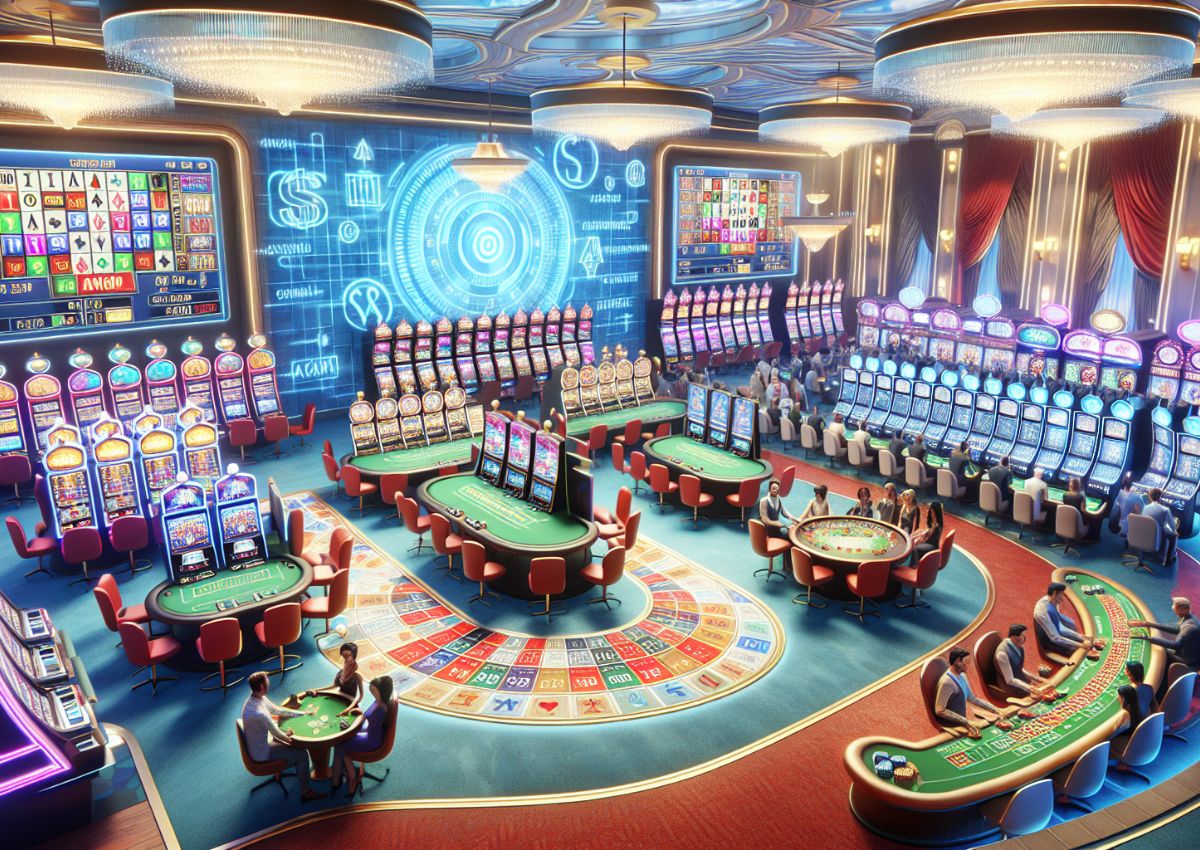The Future of Casino Gaming Technology
admin
- 0

A environment of gaming experiences is quickly transforming, propelled by progress in technology that are transforming how gamblers engage with their cherished pastimes. From the conventional land-based establishments to the digital realm of virtual gaming, the integration of cutting-edge technologies is producing thrilling new adventures for fans around the planet. As we look forward, it becomes clear that the future of casino games will be shaped by enhanced interaction, deep imagery, and the use of data analytics to customize the play experience.
In this dynamic environment, trends such as virtual reality, AR, and artificial intelligence are making considerable advancements. These tools not only enhance the visual appeal of casino games but also amplify the overall interaction by making it more engaging and tailored to unique choices. As casinos adopt these technological advancements, gamblers can look forward to see a more thrilling and immersive journey into the world of gaming, where the options are bounded only by the creativity.
Emerging Advancements in Casino Games
The environment of casino games is evolving swiftly, driven by developments in technology that enhance the gambling experience. One of the most significant changes is the integration of VR and augmented reality. These engaging settings let players to step into lifelike casino atmospheres from the safety of their homes. With VR headsets and specialized technology, gamers can engage with online dealers and other participants, making virtual gambling more engaging and interactive.
In addition, another technological advancement is the implementation of blockchain in gambling. This distributed ledger technology guarantees openness and fairness in gameplay. By leveraging blockchain, casinos can deliver players with verifiable evidence of fairness in game outcomes, enhancing faith in virtual betting sites. Furthermore, blockchain facilitates seamless transactions with digital currencies, providing players more choices and safety while participating in their preferred games.
Artificial intelligence is also crucial in the development of gambling. AI algorithms are being employed to evaluate player behavior, providing personalized gaming experiences tailored to specific preferences. This leads to improved customer care, more accurate game options, and enhanced security measures. As AI continues to advance, it will most likely transform the method players engage with gambling, producing a more dynamic and engaging gaming world.
Impact of Virtual Reality on Gaming
The implementation of VR has changed the way players engage with casino games. By submerging players in a virtual environment, VR enables players to perceive as if they are actually in a real casino. This enhanced sense of being not only improves pleasure but also adds an element of social interaction, where players can experience games with participants from around the world in a collective virtual space.
With the ability to access virtual casinos, players can pick from a vast selection of games, including video slots, blackjack, and poker games, all showcased in stunning detail. sin88.name The realistic graphics and sound effects create an captivating atmosphere that mimics the adrenaline of a physical casino. This level of engagement fosters a more profound emotional connection to the games, allowing players to fully engage in their gaming journey like never previously.
Additionally, virtual reality can offer innovative gameplay mechanics that are not possible in conventional settings. For example, VR can facilitate engaging tutorials, enabling new players to learn the rules and strategies in an interactive manner. Additionally, creators can develop unique game formats that utilize the rich capabilities of VR, offering innovative and stimulating experiences that appeal to both veteran gamblers and novices alike.
The Role of AI in Game Development
AI is changing the landscape of casino game development by improving both the experience for players and game design. With ML algorithms, developers can study player behavior and choices, allowing for the development of tailored gaming experiences. This level of customization can cause greater player involvement and player retention, as players feel that the games cater to their individual preferences and methods of play.
AI is also being utilized to improve the design process of games itself. By creating simulations of various gameplay scenarios, developers can quickly detect what features appeal to players and which ones do not resonate. This method grounded in data simplifies development and enables studios to innovate more rapidly, as they can adapt their design strategies based on immediate feedback. The integration of AI tools can lead to the development of more sophisticated and fun games that make players returning.
Additionally, AI plays a crucial role in ensuring fair play and security within the games. Sophisticated algorithms can spot patterns of cheating or unlawful conduct, thus preserving the fairness of the games. With AI, casinos can implement more robust safety measures, ensuring that both players and operators are secure. This not only enhance faith in the gambling environment but also fosters a more sustainable gambling ecosystem in general.